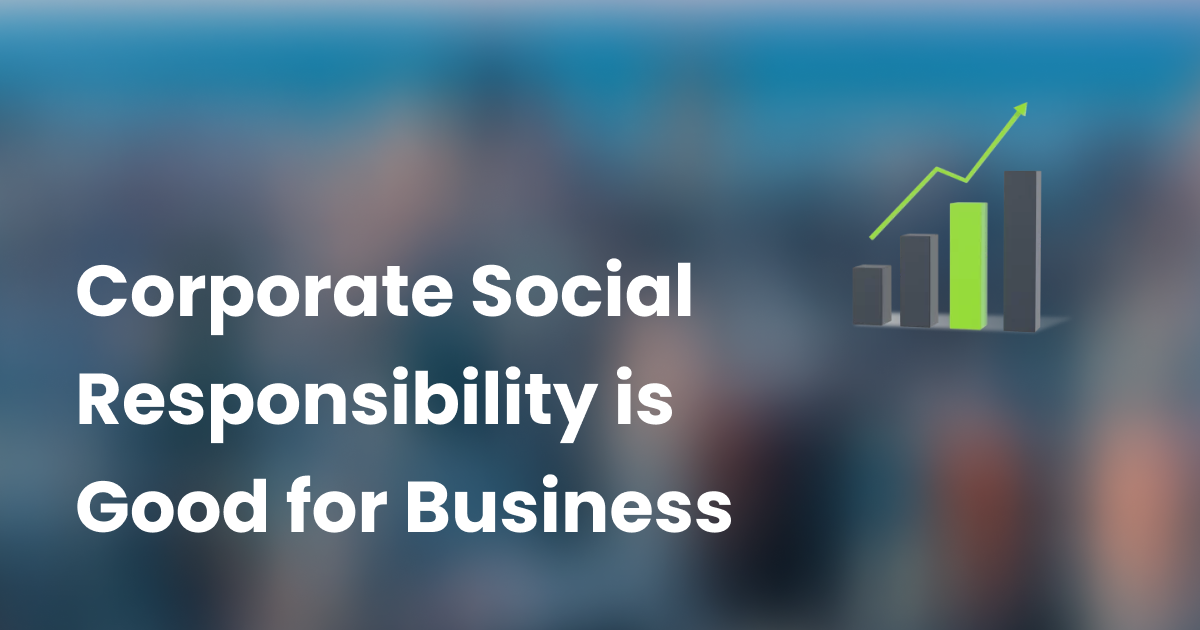The 3 Pillars of ESG
Successful businesses focus on three core essentials: people, process, and product. But increasingly, companies both large and small are building their long-term strategy according to a higher-level framework surrounding the environment, social responsibility, and governance, or ESG.
While ESG historically has been interpreted as an investment evaluation for financial institutions, other types of businesses are finding it exceedingly valuable for assessing their own business practices and, in fact, benefitting from doing so. This blog post will break down the three major pillars of ESG and explore how businesses can make sure they're meeting these standards. Stay tuned!
-1.jpg?width=462&height=155&name=andreas-gucklhorn-Ilpf2eUPpUE-unsplash%20(1)-1.jpg)
The Environmental Pillar
Key questions:
- How do the actions of a company affect the environment, from the local to the global level?
- What are the environmental impacts of a company's products and services?
Environment is by far the most widely targeted and easily understood pillar. Unlike the other two pillars, systems already exist to track their impact in this category. Companies are able to measure environmental efficiencies such as water usage, energy consumption, and greenhouse gas emissions, as well as implement solutions like environmentally friendly materials and practices to help reduce their ecological footprint.
It's been regarded for over a decade that sustainability is not only the right thing to do for the planet, but also good for business. In fact, sustainable practices can lead to increased profits, lower costs and reduced risk.
Take for example Google, which has been a leader in sustainable business practices. The company has saved millions of dollars by investing in energy-efficient data centers, using recycled materials to build its offices, and employing green transportation options.
Not to mention, sustainable practices can help companies build a positive reputation and create loyal customers. In fact, according to a study by Simon-Kucher & Partners, 85% of consumers globally reported shifting purchasing habits towards sustainable products over the past five years.
Examples of items under The Environmental Pillar
- Greenhouse Gas Emissions (GHG)
- Water Consumption
- Energy Consumption
- Product Carbon footprint,
- Renewable energy usage
- Packaging and waste
The Social Pillar
Key questions:
- How does a company's behavior affect society?
- What are the social implications of a company's actions?
The social pillar is often viewed as a tricky one to measure. It deals with people, opinions, and constantly shifting landscapes and is therefore naturally difficult to specifically measure the same way a company might be able to measure renewable energy usage.
In its most simple terms, however, the social pillar refers to the acceptance by employees, stakeholders, investors, and customers of a company's business practices and operating procedures.
Some companies take the social aspect of their business to even higher levels and build it into their brand. Take, for example, Albertsons. The grocery company commits itself to ending hunger in the communities they’re part of. By providing groceries and meals to families who could otherwise not afford them, Albertsons gives back to the communities it exists in.
While not every company has the capacity to be as proactive, it's important for businesses to at least consider the social implications of their actions. After all, in today's climate, consumers are increasingly interested in doing business with companies that share their values.
Something as simple as opening lines of communication between customers or employees and a company through a community can be a major step in promoting the social pillar of a company.
Examples of items under The Social Pillar
- Human rights,
- Diversity Equity and Inclusion
- Investment in communities
- Data privacy
- Access to career development
- Advocacy
The Governance Pillar
Key questions:
- Are a company's actions ethical?
- Can a company be trusted?
The governance pillar refers to a company's governance policies and practices. At the most basic level, this pillar is all about trust. Can investors trust that a company will make good on its promises? Are the goals of the board and C-Suite in line with those of shareholders, employees, and customers? Are employees confident that their workplace is safe and fair?
A great example of a company with good governance is Patagonia. The clothing company is well-known for its ethical practices, including ensuring that its products are made in factories that treat workers fairly and providing employees with ample opportunities to voice their concerns.
In addition, Patagonia is transparent about its decision-making process, regularly publishing reports detailing the company's successes and failures. This kind of transparency builds trust between the company and its various stakeholders.
The governance pillar is important because it sets the tone for how a company will operate. Good governance practices ensure that a company is run ethically and with integrity, which in turn can lead to increased profits, lower risks, and improved relationships with employees, customers, and other stakeholders.
Examples of items under the Governance pillar
- Board makeup and independence,
- shareholder rights,
- fair wage gaps,
- Justifiable executive compensation
- Transparency in policy
Telling your ESG Story
In our work with some of the most ESG-minded companies, we've found that broaching the ideas of ESG is one element, assessing your company's position, putting plans into action, and finally telling that story is another.
The Countable team lives and breathes impact and ESG, so if you'd like to learn more about the concepts, assessment, planning, or telling your ESG story don't hesitate to get in touch.
Learn more about Coutable's Enterprise ESG Portal >
Share this
You May Also Like
These Related Stories
.png?width=1200&height=630&name=%F0%9F%93%88%20_%20Blog%20Cover%20(2).png)
The SEC Unveils ESG Disclosure - How to Navigate it and Get Ahead

Why Corporate Social Responsibility is Good for Business
.png?width=1200&height=630&name=Blog%20Cover%20-%20Boost%20employee%20engagement(3).png)


-1.webp?width=541&height=184&name=christina-wocintechchat-com-faEfWCdOKIg-unsplash%20(2)-1.webp)
-1.webp?width=489&height=133&name=jason-goodman-6awfTPLGaCE-unsplash%20(1)-1.webp)